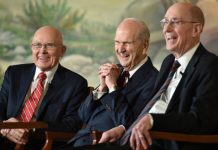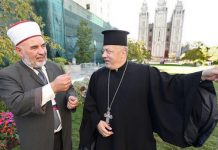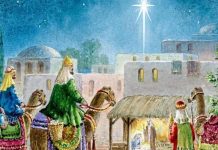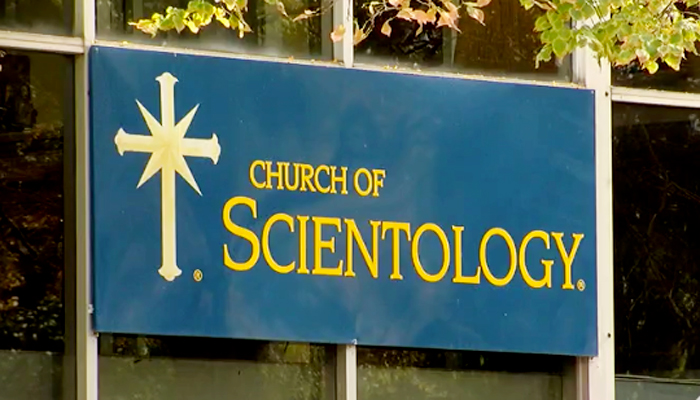
Have you ever been to the religious service of a church other than your own? I grew up as a Latter-day Saint and always found the prospect of encountering other religions quite daunting. What do I do if they challenge my beliefs? Would my testimony be strong enough?
I’ve since overcome those fears and really enjoy learning about other religions. This article is about one of those learning experiences. Take it for what it’s worth.
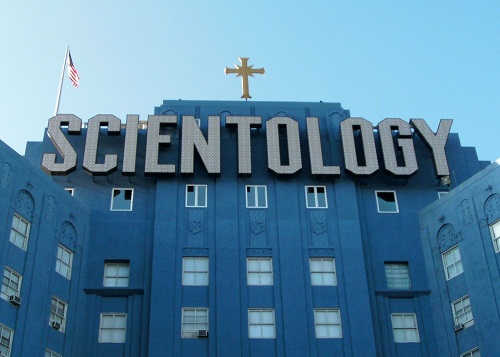
Mormon missionaries often teach that if you have questions about Mormonism, you should ask a Mormon. That makes sense. The same principle applies to most everything you might have questions about. If you want to know more about archaeology, talk to an archaeologist, if you want to know more about leadership, talk to a leader, and if you want to know more about Scientology, talk to a Scientologist.
So, that’s what I did. I found a meetinghouse for the Church of Scientology and attended one of their Sunday services. My curiosity sprang from the heated rumors, controversy and online persecution towards the organization that were prominently featured in the media at the time of my visit.
As a faithful member of The Church of Jesus Christ of Latter-day Saints, I’m all too accustomed to rumors and persecution. I sympathized with the Scientologists and wanted to see for myself what their religion was all about.
This article will explore a bit of Scientology’s history, my experience at their service, and my analysis of that experience. I’ve tried to only include links to official Scientologist websites. I do not write this to promote Scientologist teachings, but rather to give you a fellow Mormon’s perspective of this controversial organization.
DISCLAIMER: I in no way consider myself an expert in Scientologist practices or doctrine. If your curiosity extends beyond the personal experiences I relate here, consider visiting the Church of Scientology’s website.
A little history
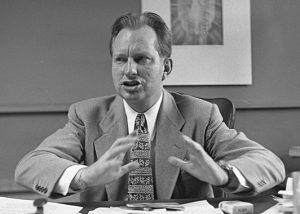
Scientology means the study of knowledge, according to the Church’s Utah homepage. Lafayette Ronald Hubbard, a prominent American science fiction author, founded the religion back in the mid-1900s.
Scientology is the result of Hubbard’s research and written works which focus on, stated simply, mental health. His research originally appeared in the groundbreaking (and New York Times bestseller) Dianetics: The Modern Science of Mental Health, published in 1950.
Hubbard’s subsequent writings and recorded spoken words (relevant to the religion) are considered scripture in Scientology.
That’s Scientology’s history in a tiny nutshell. For a more extensive history lesson, check out their website.
My experience at the Church of Scientology
I attended the Church of Scientology located in the heart of Mormondom, Salt Lake City, Utah. Yes, they’ve got a church there. The building was nondescript. It appeared similar to a standard small office building both inside and out. Their chapel was small and stocked with countless copies of Hubbard’s works—their scriptures. I estimate the room could seat approximately 30 to 40 people, comfortably.
I was the only non-staff member that attended the service. My contact in the church mentioned that many members of Scientology also belong to other religions and thus attended different Sunday services.
I found that extremely interesting as it implied an effort to integrate the differing pre-established beliefs of their members. This notion is confirmed by their website, which states that “the Church of Scientology has no set dogma concerning God that it imposes on its members.”
In other words, Scientology does believe in a Supreme Being, or a God figure, but does not expound on the nature of that being. Therefore, you could be a Catholic, Jew, or any other religion and still subscribe (literally) to the Scientologist religion.
The Service
The service was short. Very short. A young man, probably in his mid-twenties, filled in for the usual minister.
He stood at a pulpit and read aloud The Creed of the Church of Scientology. The Creed sounded like a mixture of The Bill of Rights in the style of our Articles of Faith. The text in the video (below) is what the substitute minister read.
What followed was a reading of Personal Integrity, an excerpt from one of Hubbard’s thousands of works. I’ll bet you can’t guess what it was about.
The service concluded with one last short reading called Prayer for Total Freedom. The meeting lasted for about 15 minutes. No hymns, no sacrament and no ward choirs.
Auditing
My building guide then explained that after the initial meeting, members usually go through group processing, or group auditing.
One of the pamphlets I received at the service defined the auditing practice as a “central religious practice of Scientology, which is a precise form of spiritual counseling between a Scientologist minister and a parishioner” (or member).
The counseling session could resemble a Mormon’s interview with a bishop, but in Scientology the meeting employs a machine called an E-Meter. E-Meter is “Short for electropsychometer, a specially designed instrument which helps the auditor and preclear (parishioner) locate areas of spiritual distress or travail,” according to the pamphlet.
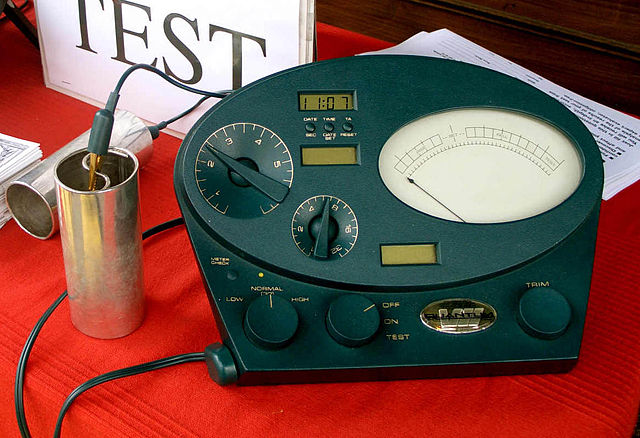
The E-Meter is comprised of a dashboard-like console which displays a simple meter (it looks similar to the speedometer in your car). Two wires or cables extend from the console and attach to two metal cylinders. The member grips these cylinders, one in each hand, and the auditing session begins.
The auditor and member chat, similar to an interview with a Mormon bishop. The E-Meter, according to Scientologist the belief, identifies the root causes of the user’s mental and spiritual distress.
Course Study
A sizable chunk of their building was dedicated to course study. Hubbard’s works are organized into individual lessons that members (or even non-members) pay to study. Next to auditing, course study and advancement seemed to be one of the major activities of the religion.
One of the primary talking points of anti-Scientologists is the alleged exorbitant prices for books and course subscriptions. There’s plenty of anti literature stating various prices (which may or may not be accurate), but I haven’t been able to find any specific numbers via official online sources, nor did they mention any specific prices during my visit.
My take
My experience with Scientology could be compared to any given investigator’s experience in the Mormon Church (or any church). I’m sure I barely scratched the surface of their beliefs and practices, but I did see some value in what I experienced.
Do I believe in the Scientologist system? Respectfully, no. That said, they do a lot of good around the globe through a variety of ongoing projects. The world needs more of that. I can also appreciate their emphasis on fundamental human rights and respect for other religions.
There is plenty that I don’t know. My visit did not enable me to dispel the rumors you may see online from questionable sources about aliens and implants and cults, etc. I question the religion’s origin story, just as many investigators of our religion question our own origin story.
But this isn’t an article about conversion and theology, it’s an article about understanding and learning. We all have friends who belong to other religions. Hopefully we chat openly with them about our beliefs, but how willing are we to learn about theirs? Do we shy away from exposure to a religious culture outside of our own? Visit a Catholic mass. Stop by a Jewish synagogue. The insights you gain from their different perspectives might surprise you.
I’m not here to try and ‘debunk’ Scientology, so I won’t. My hope is simply that, over the past several minutes, you’ve learned something new about a fascinating organization that was previously foreign to you. As Mormons we believe that we alone have access to the fullness of the gospel, but we can find bits of light anywhere. No matter your circumstances, take the light, learn from it, and keep moving forward.


